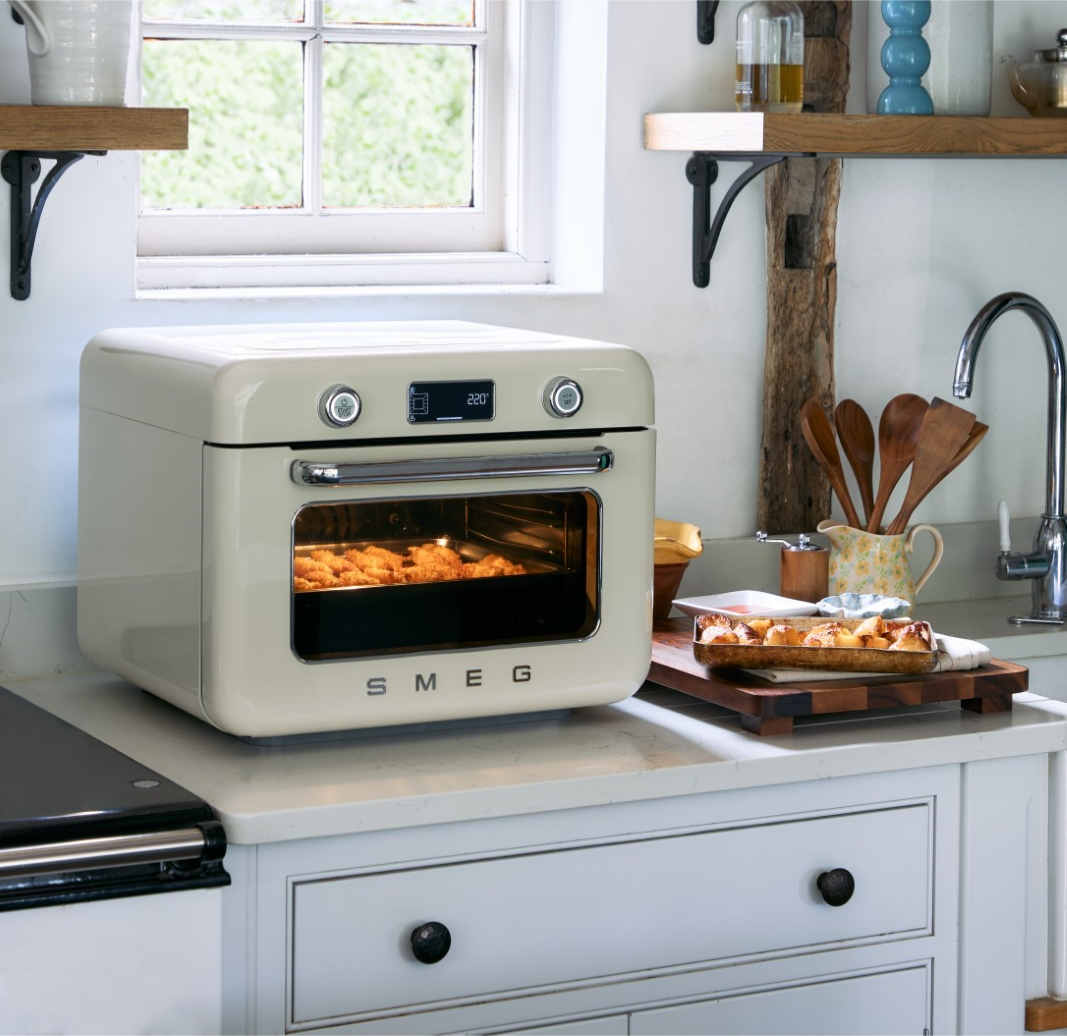
No longer do people want to give up prized kitchen real estate to appliances that only have the ability to perform one task. It’s now almost a given that your air fryer should also be able to bake, roast, grill, reheat, and more.
All the best air fryers are multifunctional, but there’s a new wave of countertop ovens that seem to be increasing in popularity alongside the more traditional basket style air fryer. Smeg’s answer to this is its 10-in-1 Combi Steam Oven.
Just reading about the cooking modes and programmes built into this appliance has my head spinning. But at the same time, its cute retro appearance is a nice departure from some of the more industrial looking models I’ve reviewed. The catch is, it’s incredibly expensive, so does its performance justify the price tag?
Smeg Combi Steam Oven 10-in-1 product specs
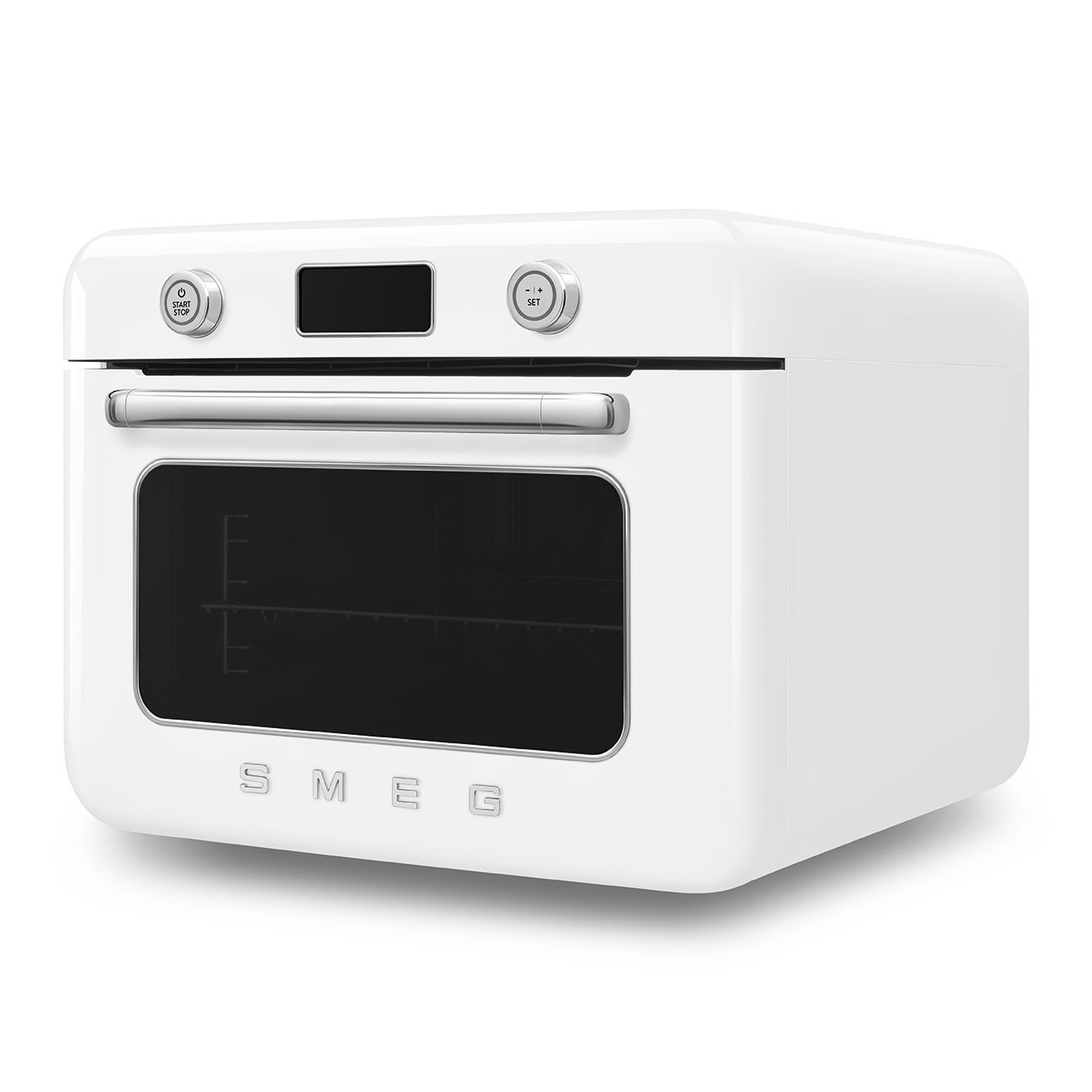
- Capacity: 30 litre
- RRP: £849.95
- Dimensions: H:40 x W:50 x D:50cm
- Cooking modes: Chef menu: 33 automatic programmes/ Traditional menu: static, convection, grill, bottom, air fry, warm, defrost/ Steam menu: pure steam, convection steam, grill steam.
- Dishwasher safe? No
- Available colours: black, cream
Unboxing and first impressions
Well firstly, I have to give credit to Smeg for the fully recyclable cardboard packaging. In my experience even the brands with the best intentions struggle to move away from polystyrene for larger, heavier appliances.
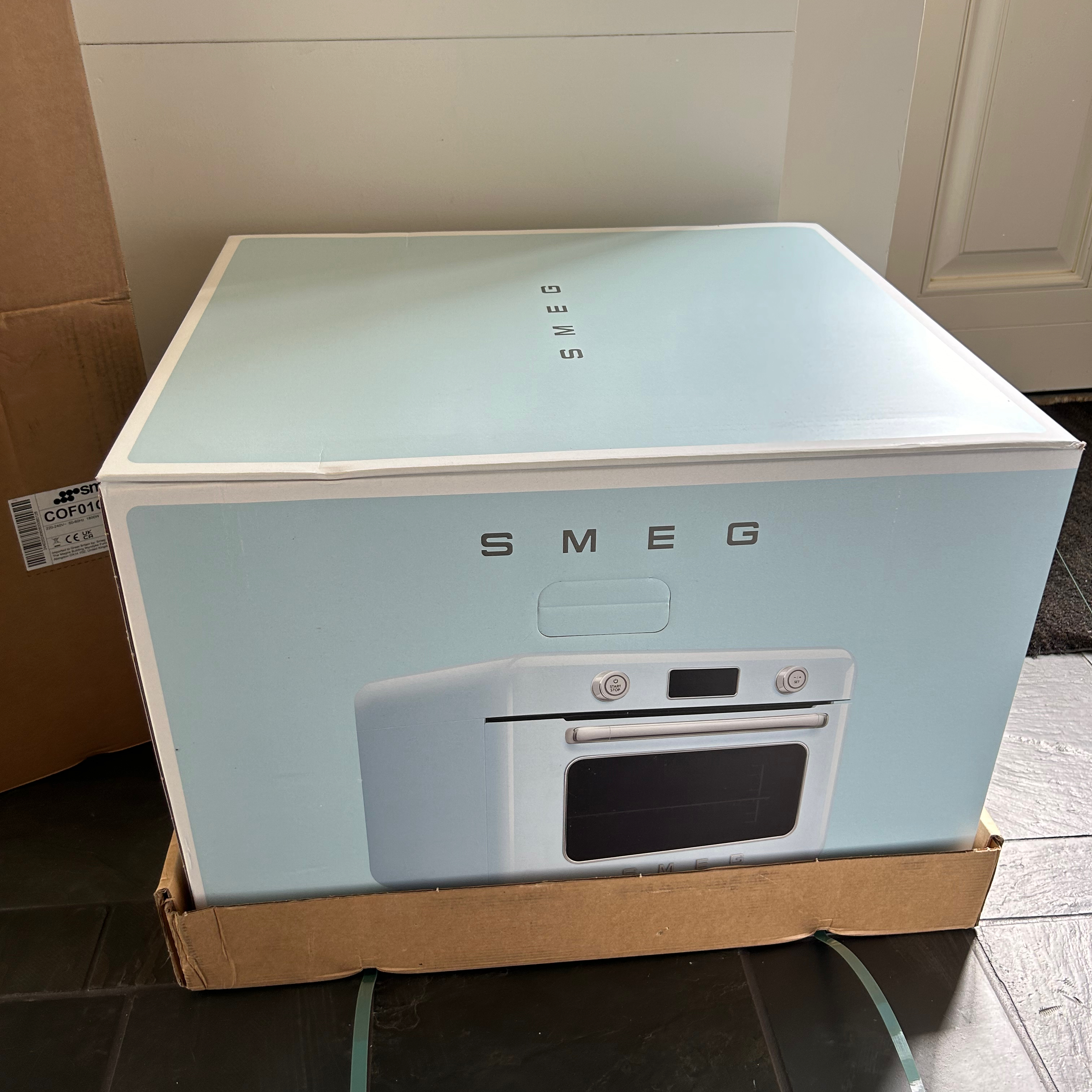
And make no mistake, this is a large and heavy appliance. It was a two man lift from the van into my house, where I unpacked it right by my front door. I was however able to manage lifting it from the floor to the worktop without too much hassle. But this thing is more comparable to my actual oven in size, than to a standard countertop air fryer.
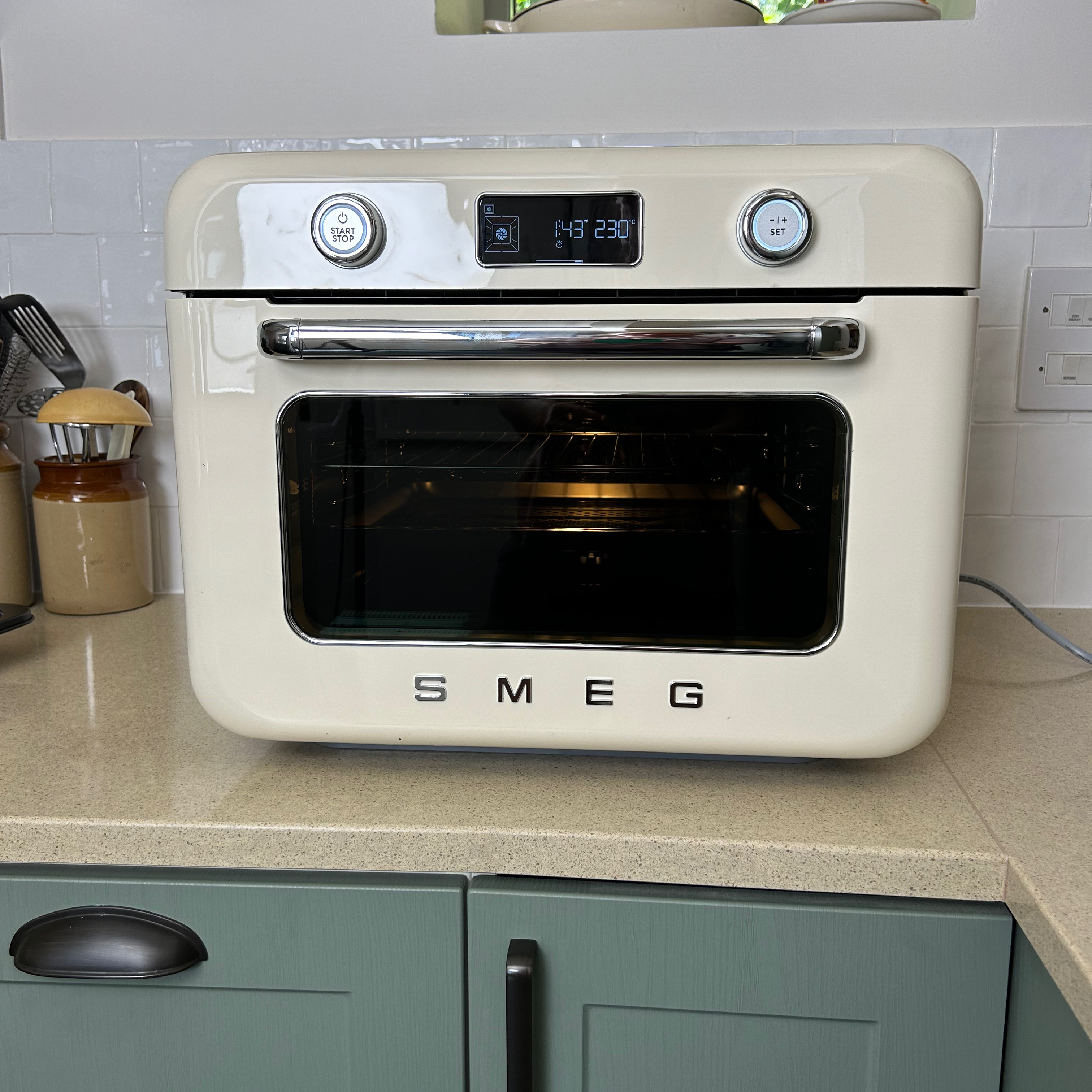
Its vintage style streamlined curves are pleasing to the eye. Which is good, because there’s no tucking it into a corner and hoping nobody will notice it. It spans the full depth of my worktop and its width is only 10 cm smaller than a standard built-in oven.
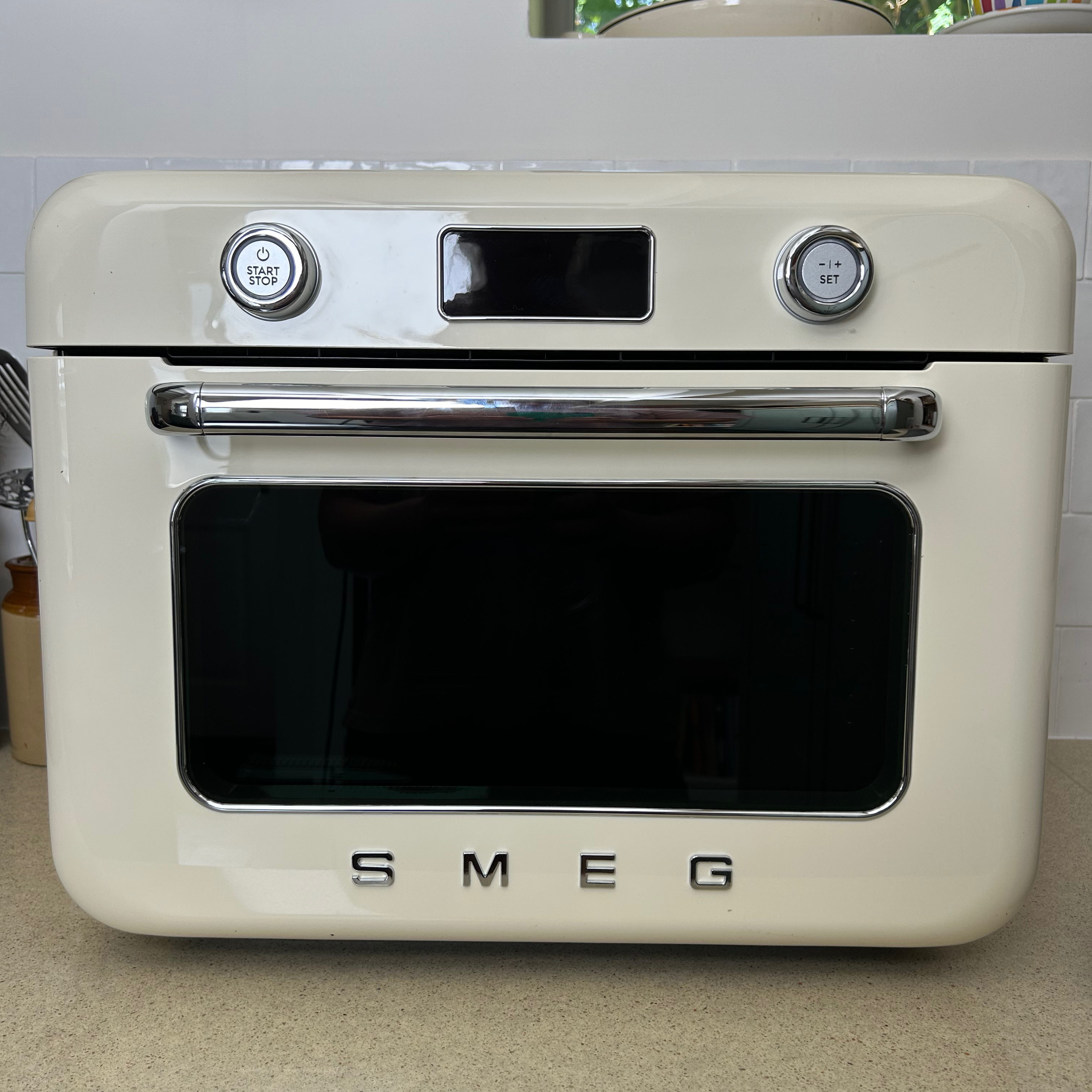
Luckily, it comes with just three accessories; a rack, an enamelled cooking tray, and a stainless steel perforated tray. And all can be stored inside the oven, so there’s not annoying extra bits and pieces to find room for in my already overflowing cupboards.
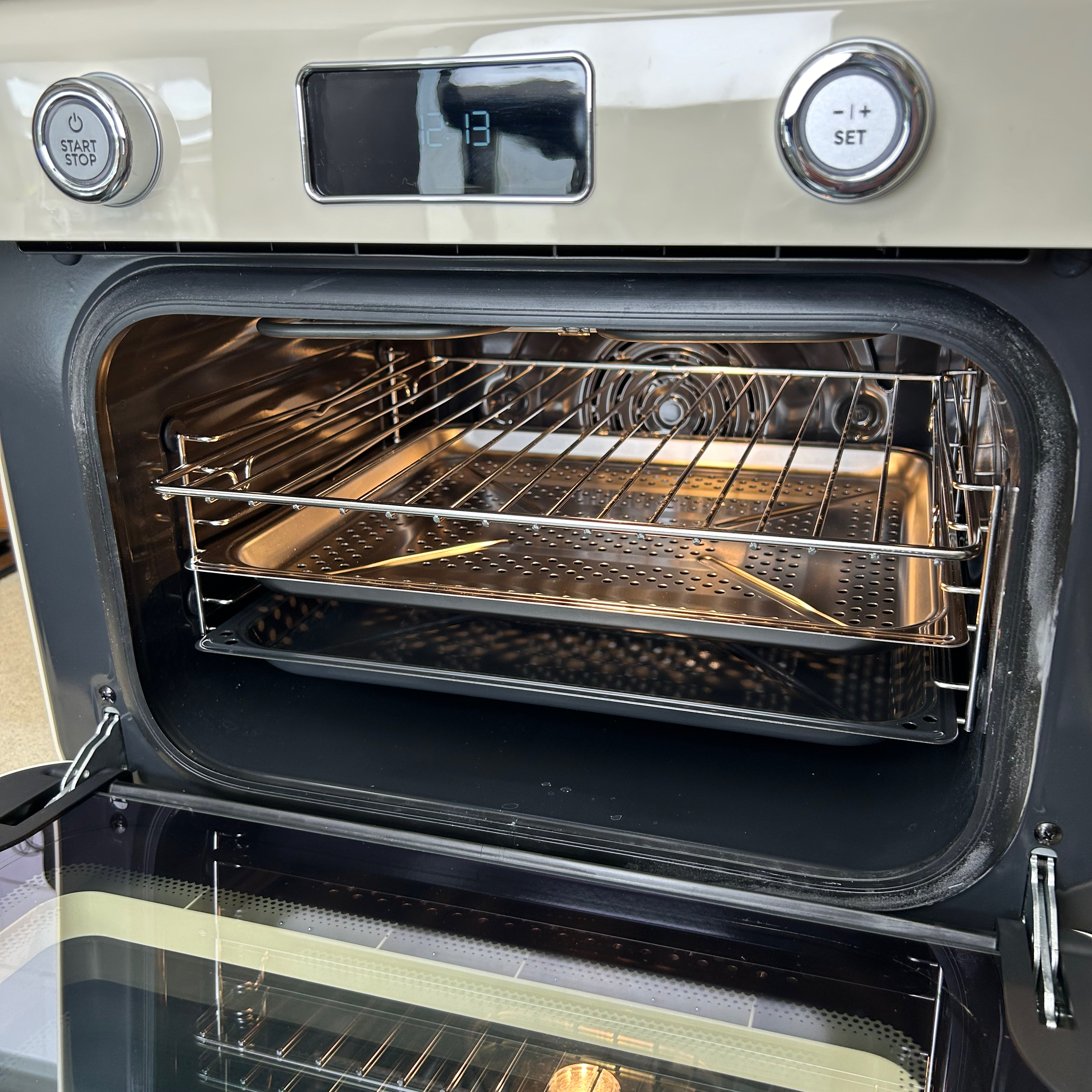
A flip up lid on top reveals a large removable water tank. And the inside of the lid displays a menu of functions. The control panel on the front consists of just two twistable knobs with a button in the centre of each one.
I was immediately able to figure out how to set the various cooking modes, it's very simple and intuitive to use, despite its vast array of functions. However, with 33 foods to choose from on the chef menu, I did need to consult the instruction booklet when making use of this function.
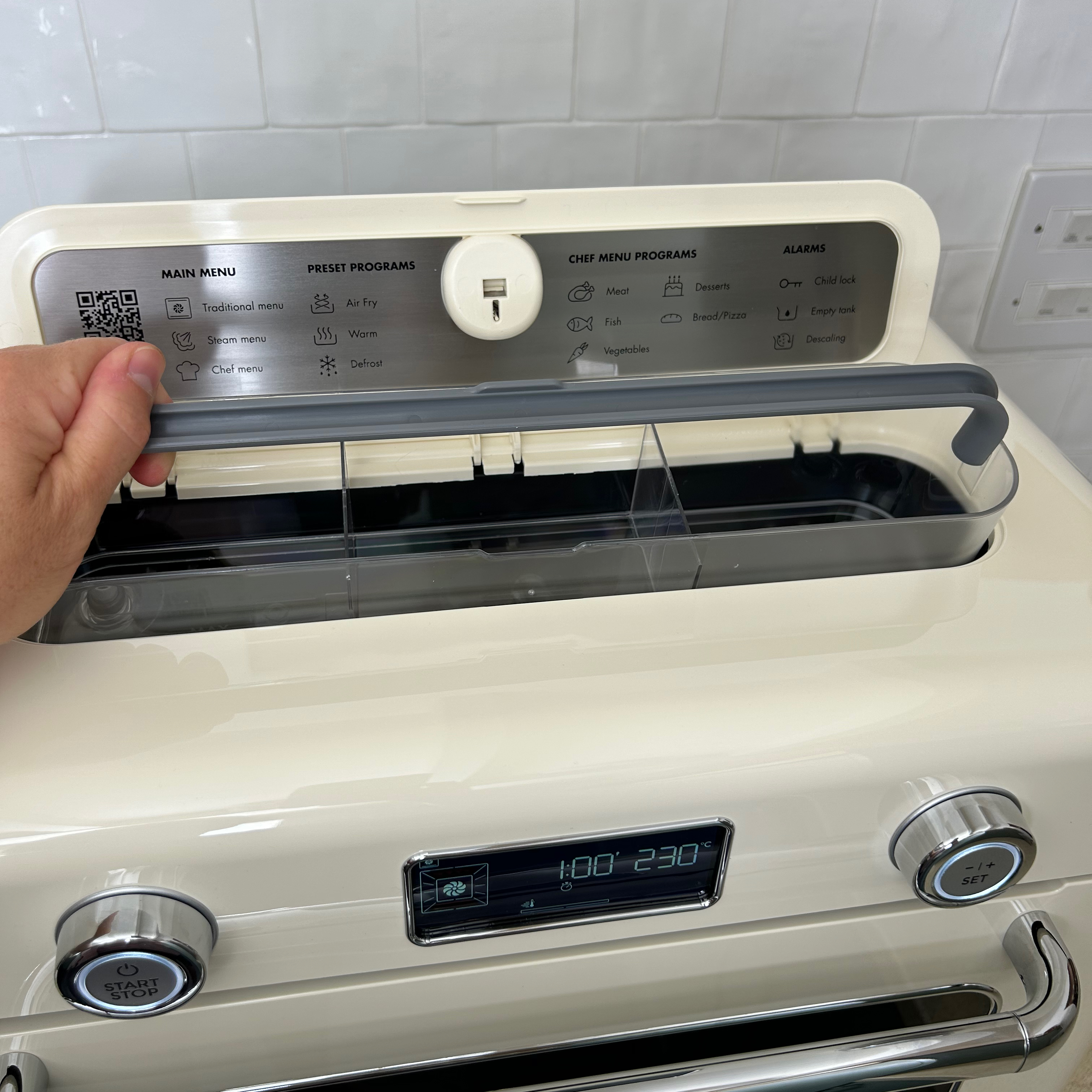
The display divides the chef menu into categories, so I could easily navigate to ‘cakes and sweets’ for example, but beyond that, the seven options are selected by number, not name. So it’s impossible to get to the right one without referring to the manual.
Before using it for the first time, the manual advises running it for an hour on the highest temperature. This is to burn off any manufacturing residues. And I can confirm there was quite a chemical smell given off. I had to crank up my extractor and open the window to make sure it didn’t linger in my kitchen.
What is it like to use?
Using the Chef menu setting
Cakes and sweets
To bake some banana and chocolate chip muffins, I used the muffin/ cupcake preset within the cakes and sweets category in the chef menu. And I was happy to discover there was enough room inside for my big muffin tin - which rarely fits in any appliance I review.
This programme uses steam as part of the bake process, so I had to fill up the water container. I also needed to know the total weight of the muffins, since inputting this determines the time they’re cooked for. Once it was all set up, it preheated for several minutes. It doesn’t display the cooking temperature, so that’ll remain a mystery.
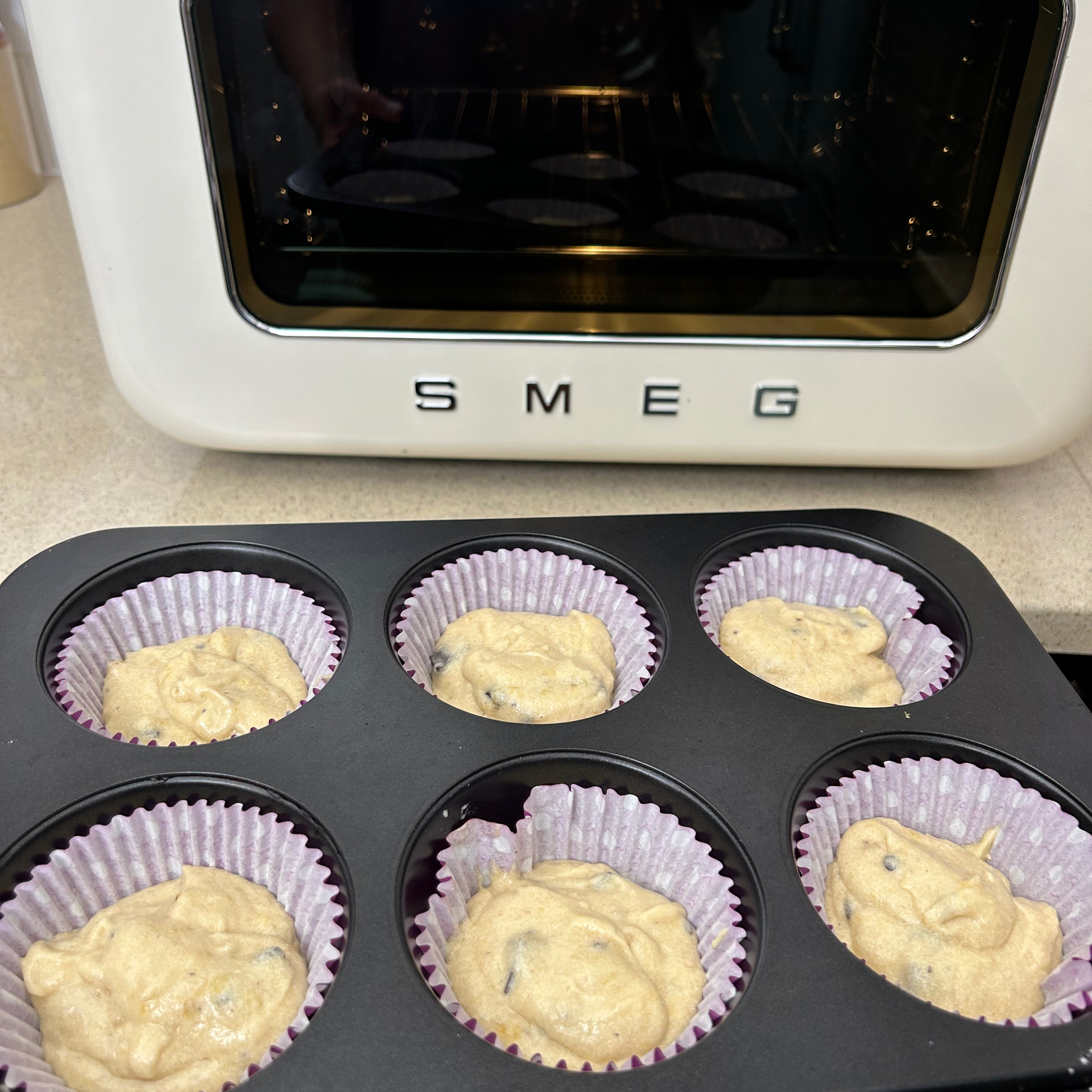
Once it was ready it beeped, I popped the muffins in, and pressed start. The timer started counting down from 20 minutes. However I did make the executive decision to remove them after 18 minutes. They were very evenly browned across the tray and had risen beautifully. Inside, the cake texture was super soft and fluffy, more so than usual.
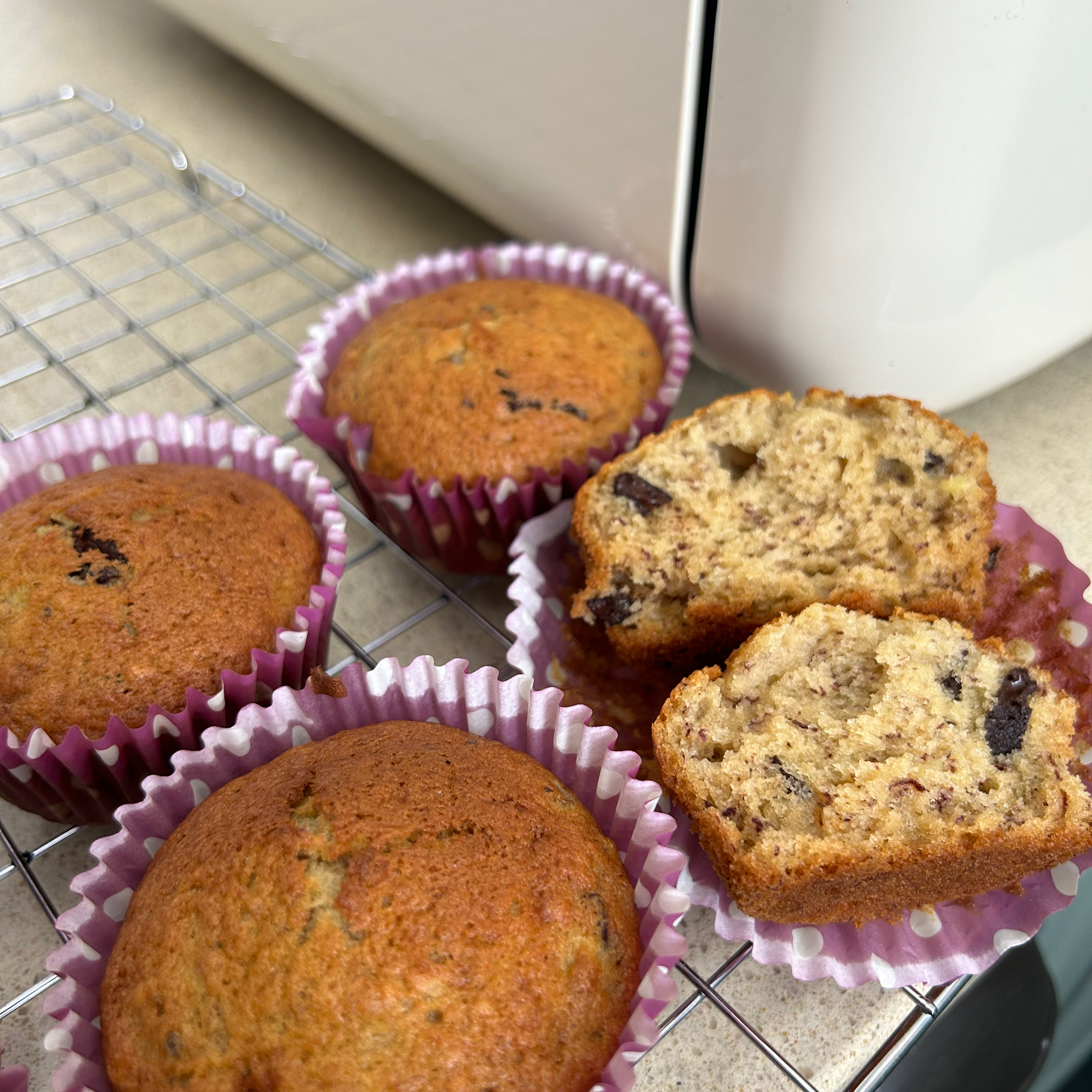
Meat and poultry
I decided to try out the whole roast chicken preset. But I immediately came across a stumbling block when adjusting the weight in the settings. I had a 1.8kg chicken, but inexplicably the options only go up to 1.5kg. So I had little choice but to go with that, and potentially add on some extra time at the end if needed.
Again, I had to fill the water container and allow it to preheat which took around six minutes. The timer counted down from 1 hour 22 minutes and I kept an eye on it through the large viewing window in the front.
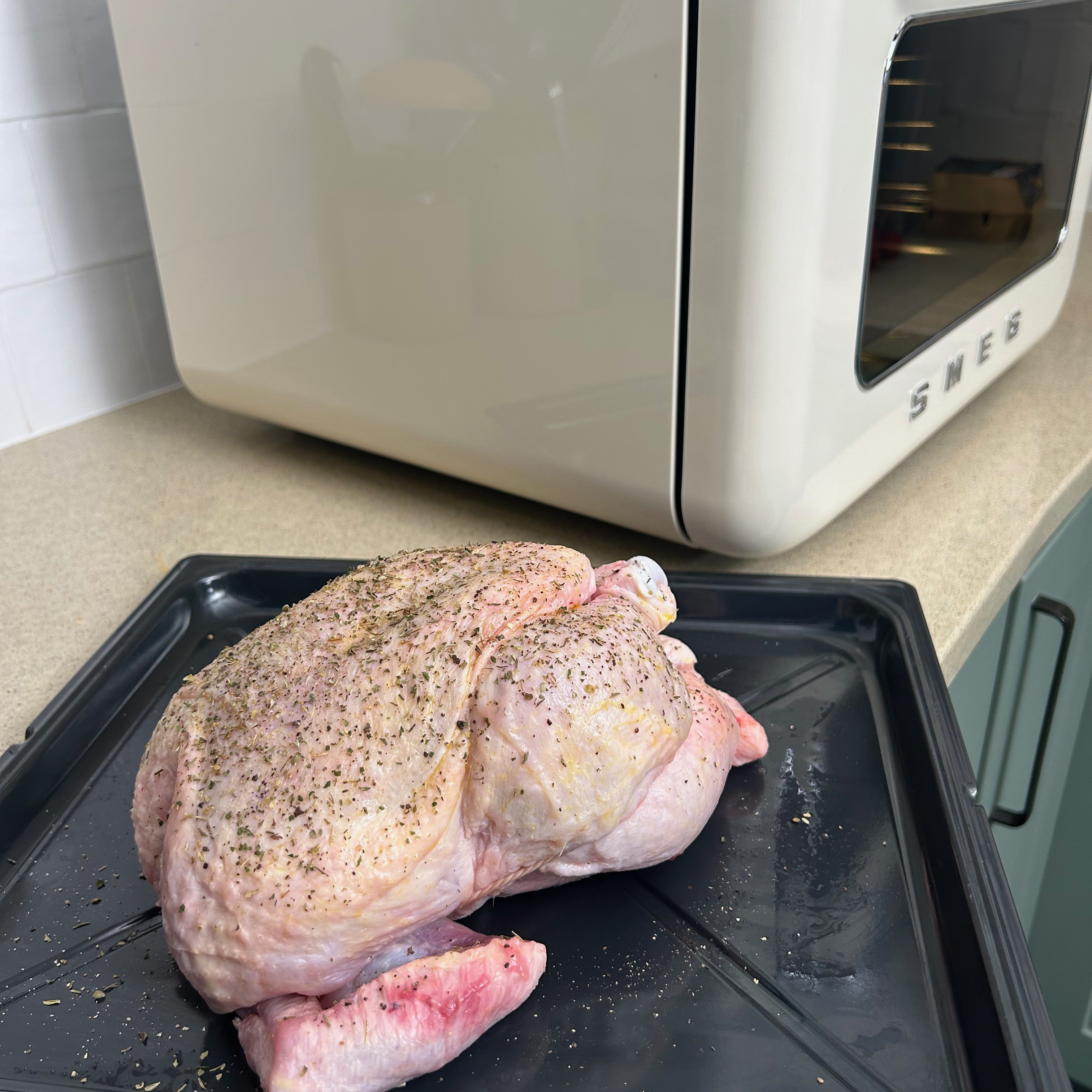
When the timer went off, it looked cooked and golden brown. But to be sure, I rigorously tested it in several places with a meat probe to see if it needed extra time. It was above 80C everywhere so I was happy that it was cooked through. The skin was crisp and the meat was succulent and perfectly roasted.
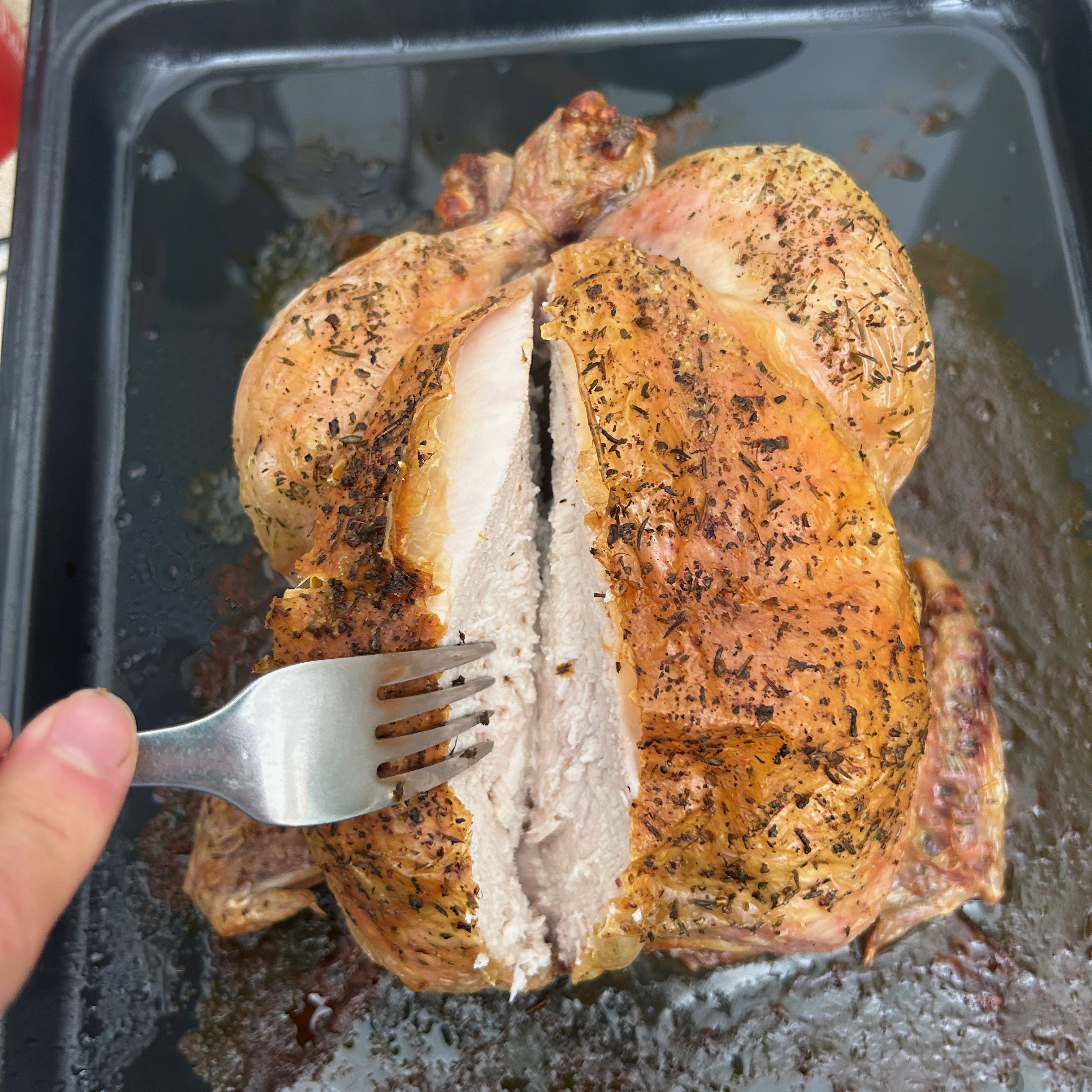
Bread, pizza and pies/ flans
Within this category there’s a programme for lasagne which I decided to try out with a veggie lasagne. Surprisingly this setting also utilises steam, so there was a tiny bit of me that was worried I wouldn’t get those gnarly crispy bits on top which are, in my opinion, one of the best bits.
As with all the chef modes, I had to input the weight of the lasagne, which was 2.7kg. However, I stumbled upon the same issue as with the roast chicken - the weight options only went up to 2.2kg. So I set it to the maximum and started the preheat.

Once the lasagne was in and cooking, I left it for the full 55 minute cook time. And thankfully this was long enough to cook it through and create a perfectly golden top. Better yet, it had the crispy bits at the corners and edges that I was hoping for.
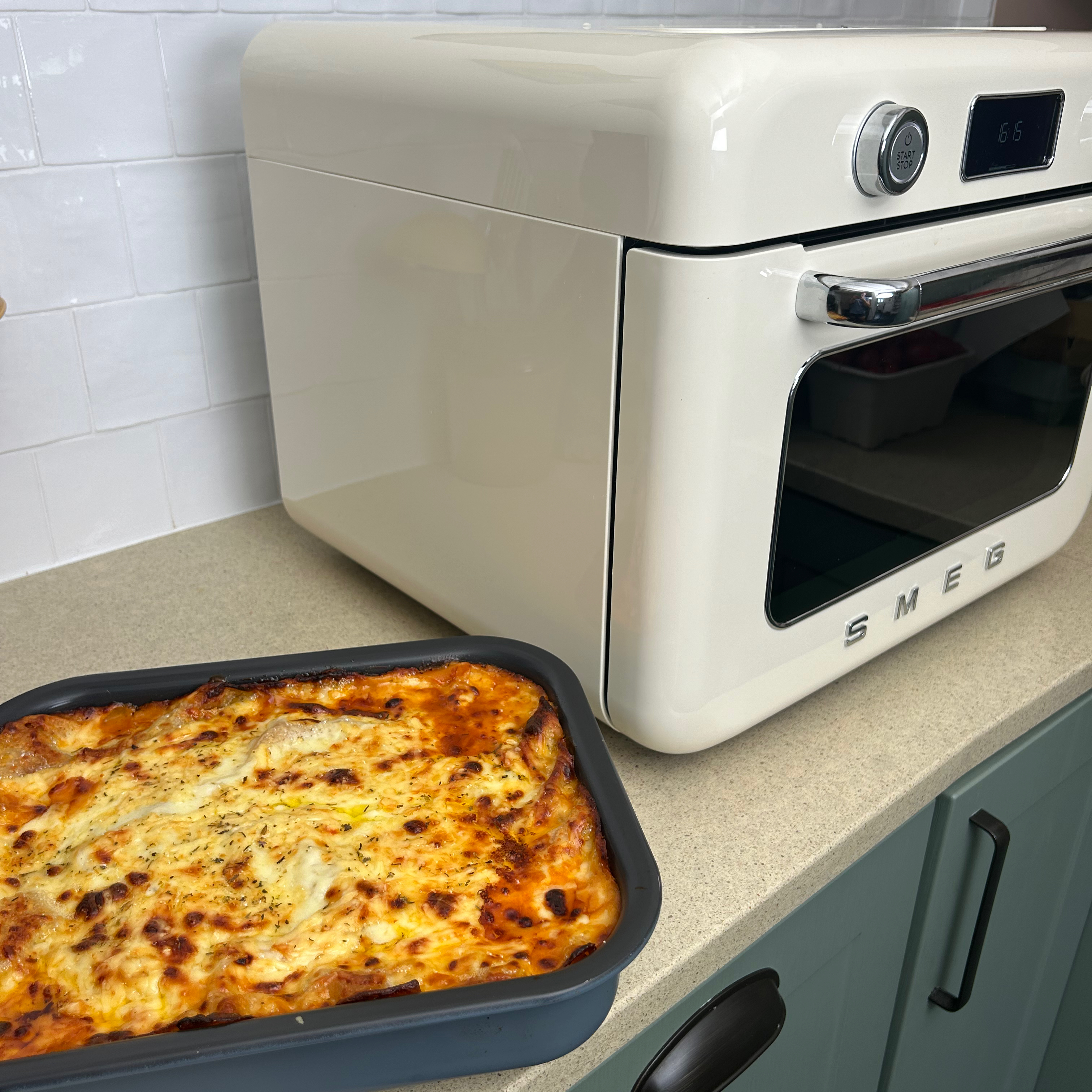
Steam cooking
Since steam was used in every one of the chef menu programmes I tried, I felt like I had a good take on its abilities when combined with dry heat such as the grill or convection oven. Plus, using steam with the grill or the convection oven would require some potentially lengthy experimentation.
So instead, I went for the straightforward option of steaming some carrots. A simple test to see how well it performs this basic task. I filled the water tank and started the steamer. It took five minutes to preheat, which gave me enough time to chop my carrots and spread them out on the perforated tray.
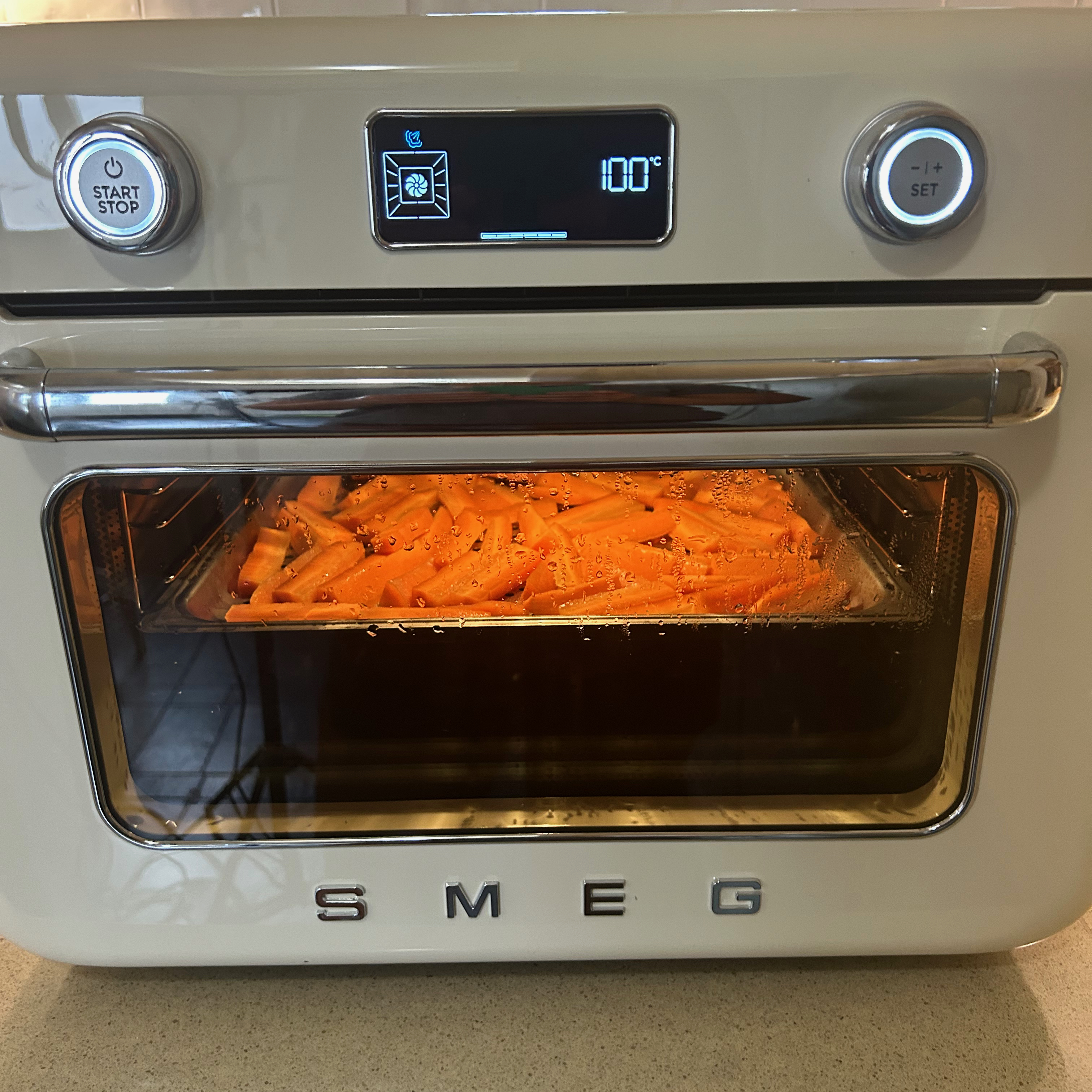
I’m not sure why, but there isn’t an option to set a timer when you’re using the steam function. So I had to use a timer on my phone. What’s more, with no guidance on how long things take to steam, I had to make a bit of a guess on the timings and then open it up periodically to stick a fork in the carrots.
The carrots were steamed in 15 minutes. And I was thankful my kitchen wasn’t steamed up in the process, unlike some other appliances, it doesn’t emit loads of steam during cooking.

Traditional cooking
Air fry
I used the air fry setting on two separate occasions, firstly to cook up frozen breaded chicken fillets and secondly for homemade chips. Sadly, both times were not up to the standard I’ve come to expect from a standalone air fryer.
The chicken took 20 minutes, meanwhile the chips needed 40 minutes. These times are double what they would usually be in my air fryer. And it wasn’t just the time, the breadcrumb coating on the chicken wasn't nearly as crunchy as it is when air fried.
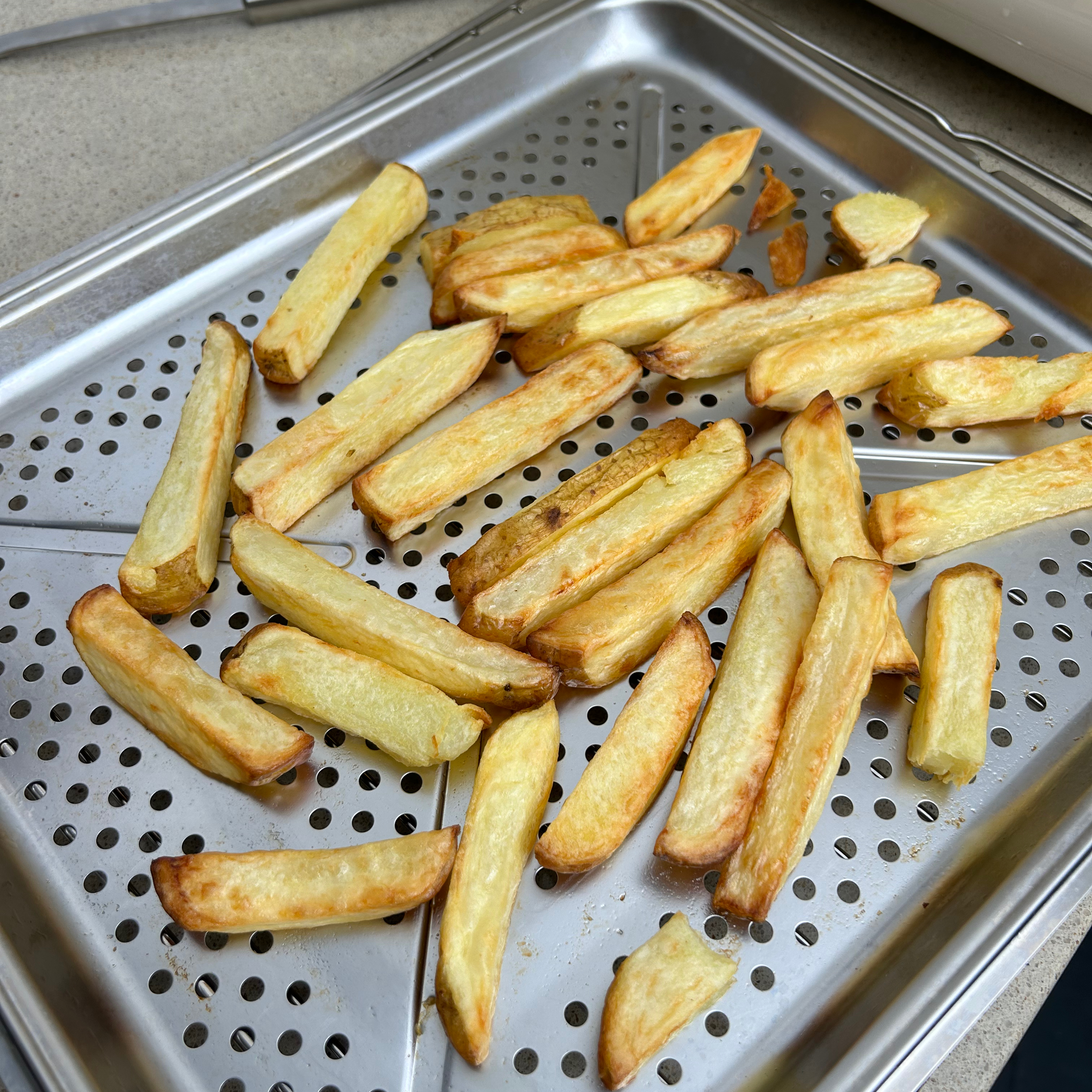
The chips stuck to the perforated tray. I loosened them during the first turn and luckily they didn’t stick again. And while they were cooked through and crisped, the texture wasn’t quite as good as I can create in a normal air fryer. I also found it annoying that there wasn’t a countdown timer in this mode.
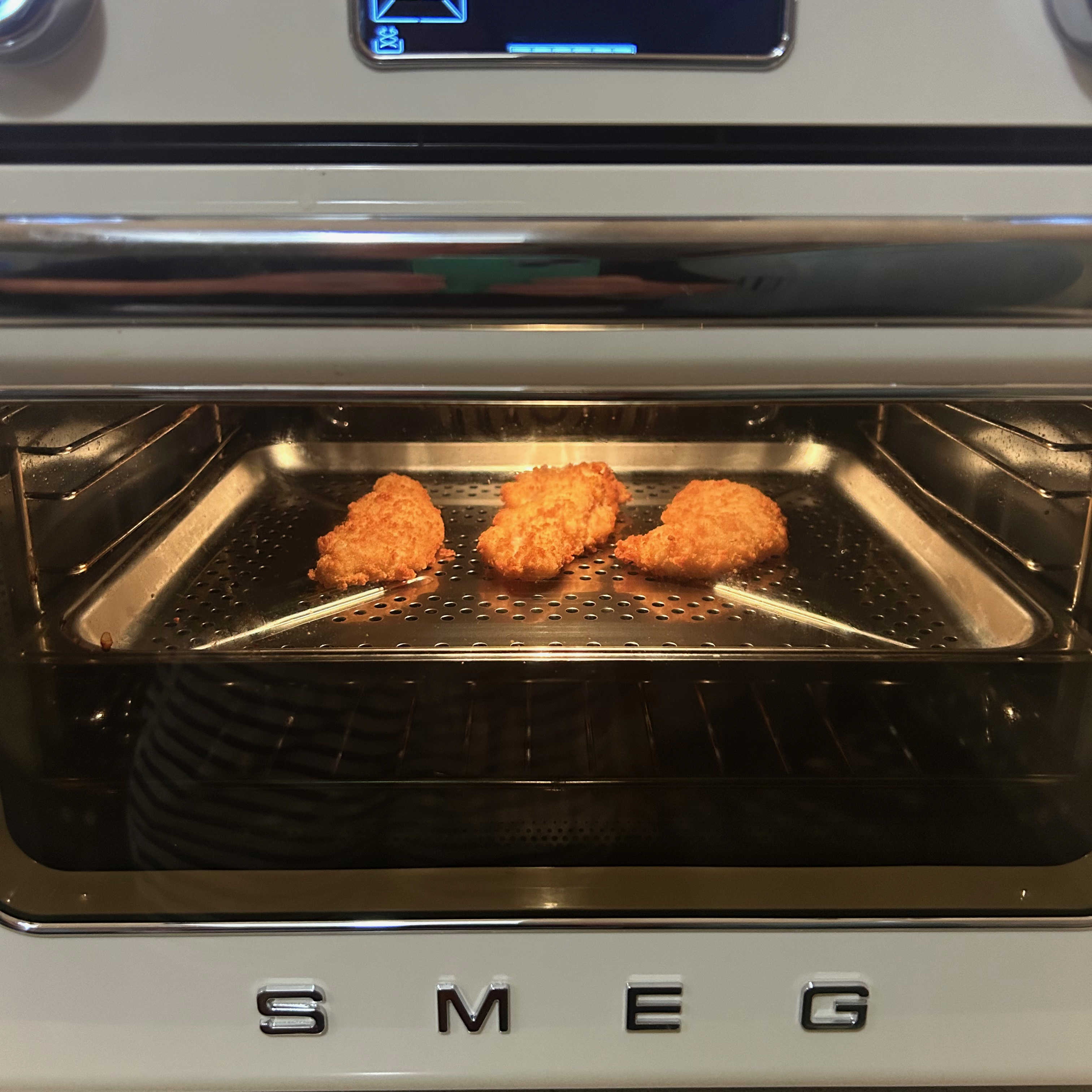
Grill
The grill was useful when I wanted to melt some cheese on top of a dish of cheesy mash. I left it on the default temperature of 230C and the cheesy topping was golden and bubbly in 15 minutes. Although it did take a tedious 13 minutes to preheat.
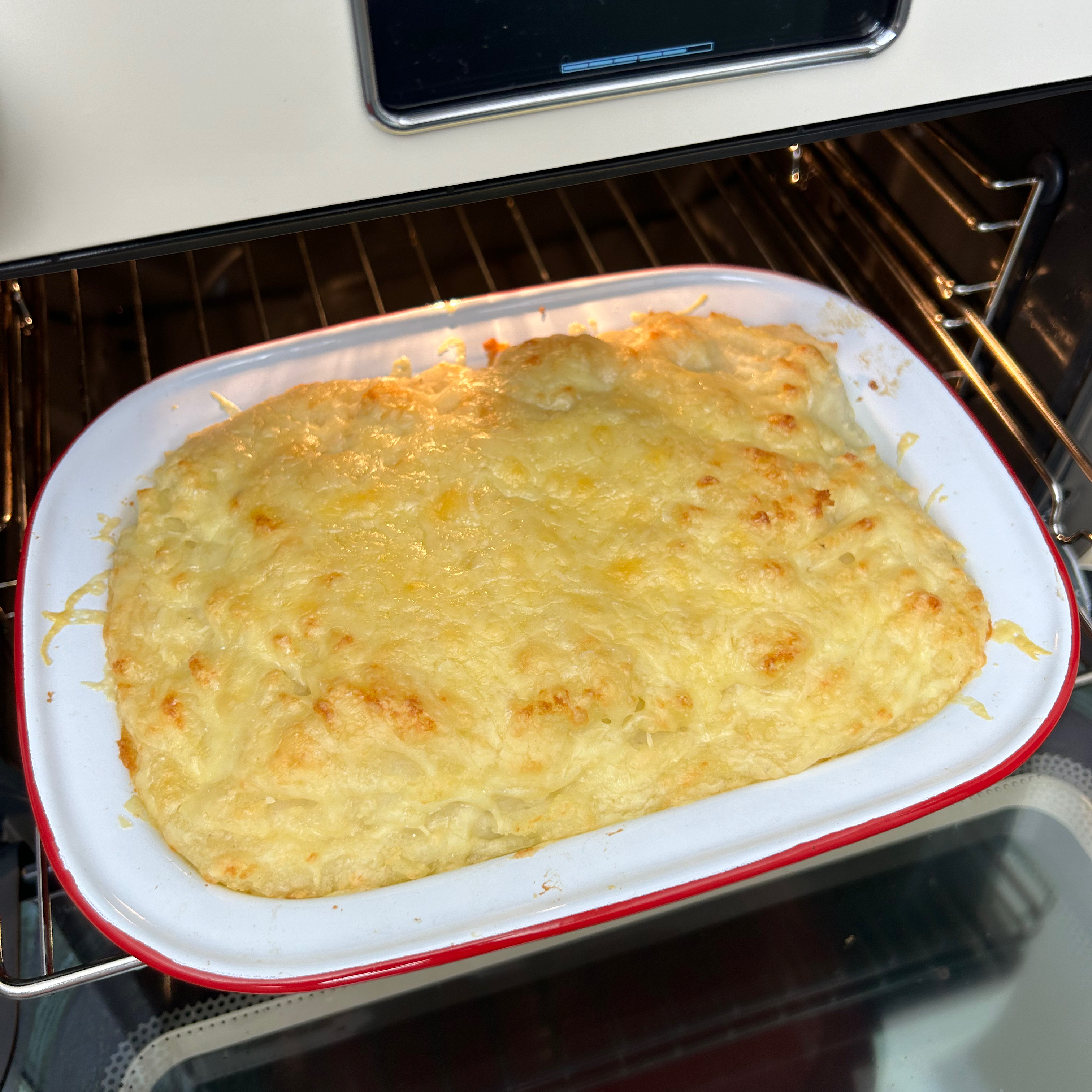
Convection
The instructions advise this cooking mode as the best for cooking on more than one level, so when roasting a couple of trays of vegetables for the aforementioned vegetable lasagne, I used convection. On the top perforated tray I added diced onions and peppers, with diced mushrooms on the tray below.
I cooked the vegetables at 200C for 30 minutes, opening it a couple of times to stir them up. The result was perfect, nicely roasted but not dried or overly charred.
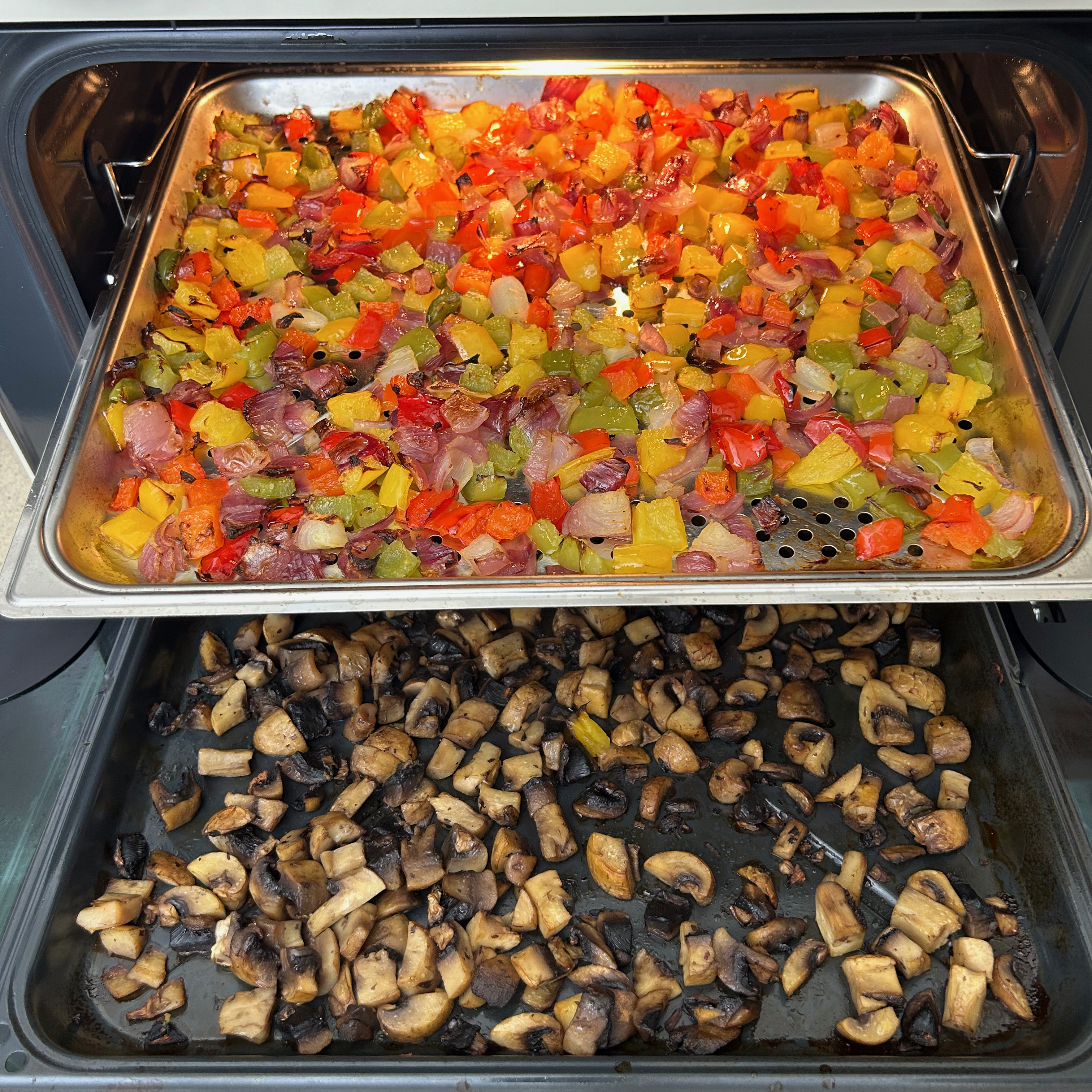
Bottom fan-assisted
This function seemed like a good option for puff pastry tomato tarts. I was hoping it’d help avoid a soggy bottom. First I preheated it to 200C which took a somewhat lengthy 14 minutes. Then I placed the puff pastry rectangles on the enamel tray and baked them for 15 minutes.
After removing the cooked pastry I smeared the centres with tapenade and topped with halved cherry tomatoes, before baking for a further 20 minutes at 190C. Once cooked I topped with fresh basil and olive oil. The bases of the pastry tarts were beautifully crisp and the tops still browned nicely, so it was win-win.
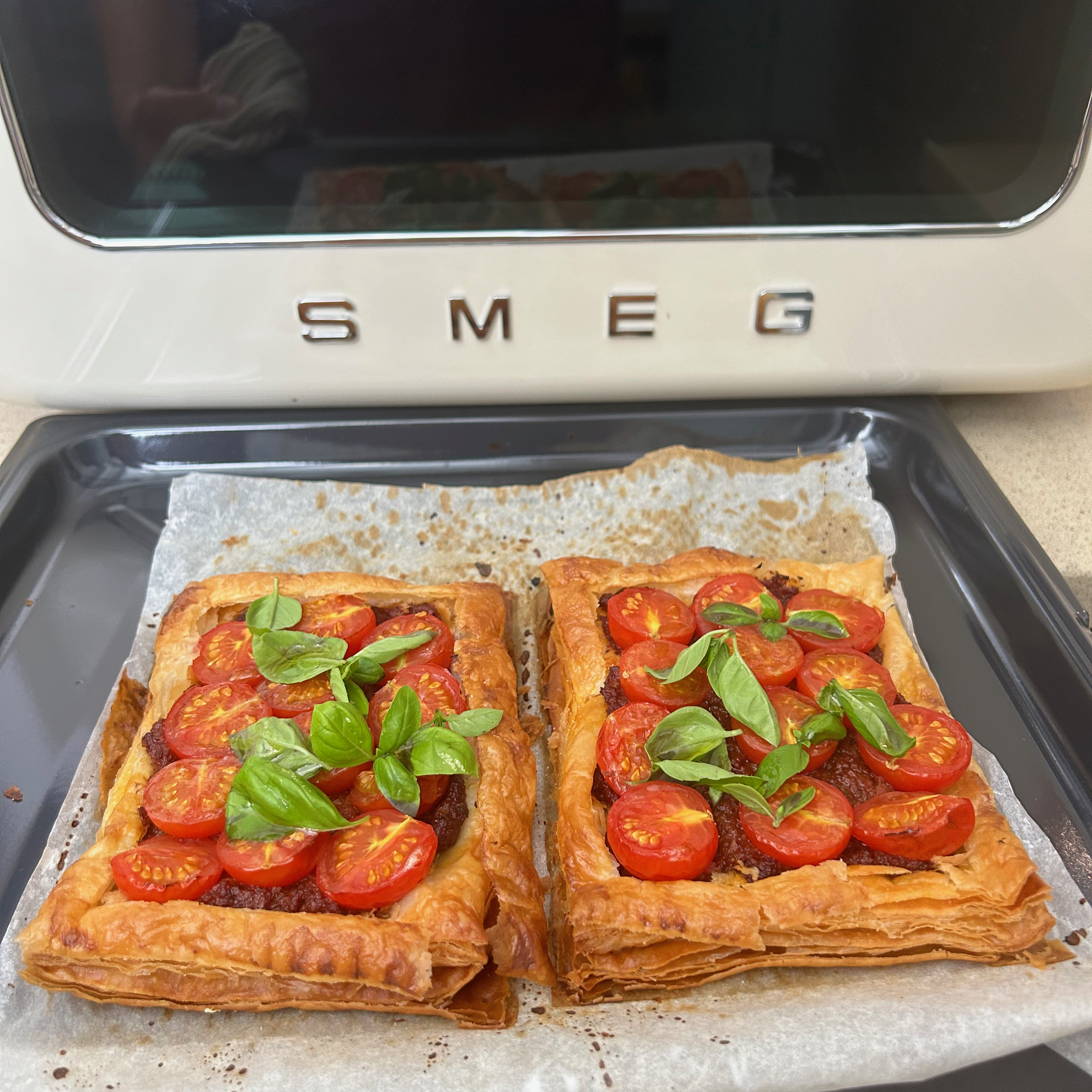
During all the tests I did, I noticed that while it does get warm, the exterior of the oven never becomes too hot to touch.
Depending on the cooking temperature and the function you’ve been using, the cooling fan stays on for a long time after it has been switched off. I noticed it was often still on 30 - 45 minutes after the end of cooking.
How does it compare to similar appliances and air fryers?
The Ninja Foodi 10-in-1 Multifunction Oven Air Fryer is the closest I’ve reviewed in size and cooking ability. And while it lacks the good looks of the Smeg, it’s hard to ignore the difference in price. The Ninja is around ⅓ the price of the Smeg.
The most budget friendly alternative is the Tefal Easy Fry Multifunction Air Fryer Oven, which is available for under £150 and is more compact too. It lacks the preset cooking modes and its smaller size means a smaller overall capacity, but you can’t have everything.
What's it like to clean?
Annoyingly, the manual advises against putting the trays in the dishwasher, so these do have to be washed by hand. To save yourself some hassle you can line the enamel tray, but not the perforated one, or you’ll be defeating the object.
The inside of the oven is enamel like many standard built-in ovens, so it’ll need regular cleaning. However you can make use of the steam function to help loosen baked on cooking residues. This will inevitably make the whole job much easier. The manual walks you through how to do this.
Should you buy the Smeg Combi Steam Oven 10-in-1?
Aside from the whopping price tag, the other glaringly obvious downside is its mammoth size. For most small to medium sized homes it’ll just be too big and take up too much space. Unless you have a larger kitchen, and/ or a lot of mouths to feed. In this case the Smeg Combi Steam Oven 10-in-1 will offer up much needed extra cooking capacity, and it’ll do a great job to boot.
I can’t fault it for its multi-functional menu of cooking modes. There are so many cooking modes and presets, I think I’d need at least a month or more to try them all out. Furthermore, everything I cooked in it was a roaring success, apart from when cooking on the air fry setting.
On the whole, performance is top notch, but for the best part of £850 you’d hope so. There’s no doubt this is a high performing all-rounder, but it’s best suited to homes with big budgets and big kitchens. And if you’re a die hard air fryer fan, you’ll still need a standalone air fryer, this oven won’t cut it.
About this review, and the reviewer
After completing a Home Economics degree, Helen went on to work for the Good Housekeeping Institute and has been reviewing home appliances ever since. She lives in a small village in Buckinghamshire in the UK, where she reviews all sorts of home and garden appliances using her wealth of experience.
Helen had the Smeg Combi Steam Oven 10-in-1 on loan from Smeg for just one week, which was plenty of time to get a good feel for how well it works. But she really felt like she just scratched the surface of what it is capable of.







